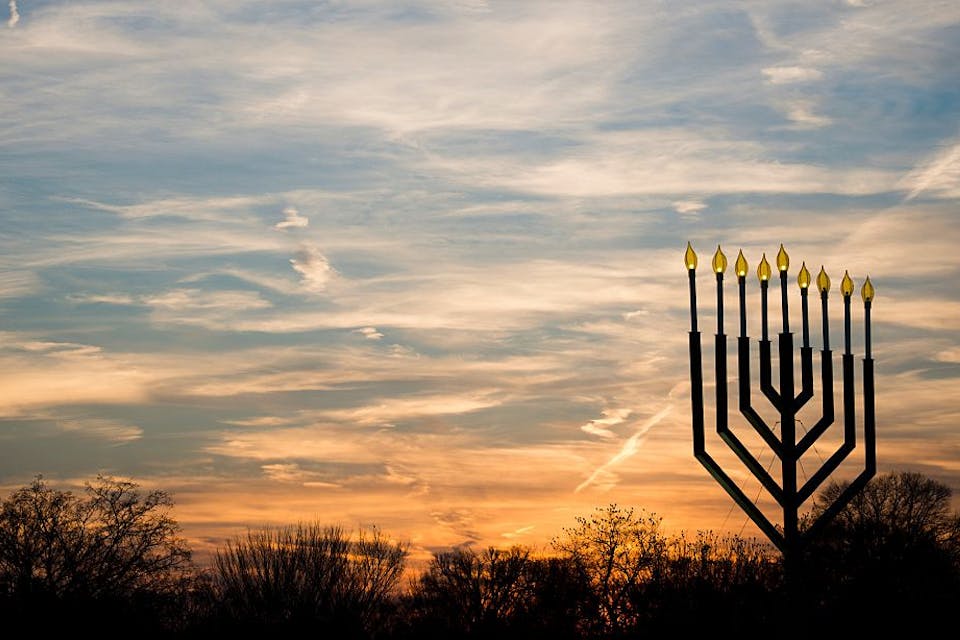
December 18, 2024
How the Jews Remain an Eternal People
We Jews are the blue and white in the red, white, and blue.
In this nervous time, one episode of my life keeps coming to mind. It was 1959—I was in my early twenties and the Yiddish poet Avraham Sutzkever was in my parents’ living room in Montreal at a reception in his honor. He had come from Israel on his first speaking tour of North America. A poet and celebrity, he was a proven hero—he had survived the ghetto of Vilna, escaping with members of the Jewish underground to join the partisans in the Naroch forest of what is now Belarus. The Jewish Anti-Fascist Committee of the Soviet Union sent a small plane to a landing strip near the forest to airlift him and his wife to Moscow, where he was received as a first eyewitness to the murder of his people, then delegated to speak as a representative of Jewry at the Nuremberg Trials.
A few days earlier, my family and I had been among hundreds at Sutzkever’s public lecture. But now he had come to our home to attend a reception for his fellow survivors of Jewish Vilna, the city known as the Jerusalem of Lithuania, Yerusholayim d’Lite. My mother was a native of Vilna, my father a graduate of its university, and among those present were other survivors of the ghetto, a fellow partisan, and fellow poets who had come from New York and Toronto.
In this intimate gathering, Sutzkever spoke about their destroyed community. In the 1930s, before the war, he had been a member of a group of young poets and painters who called themselves Yung (Young) Vilna—and he began talking about a member of that group, not Chaim Grade who was already well known, but a certain Moyshe-Itske, its most idiosyncratic member, who had to be hospitalized part of the year for mental issues. Between such episodes, he would show up at group meetings and function fairly well. But one day, as Sutzkever described it, Moyshe-Itske suddenly burst into his room and said, “Abrashe, I’ve come to tell you that I’m not going to die. I’m going to live forever!”